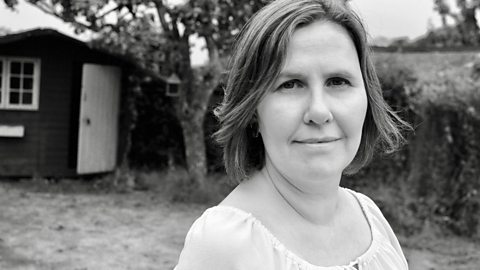
Teachers have confessed to ¬ť∂Ļ‘ľŇń Teach how they really feel about dealing with parents, as schools across the UK start opening their doors for parents' evenings.
In a short film created for ¬ť∂Ļ‘ľŇń Teach, one secondary teacher says: ‚ÄúYou never know where these conversations will take you. Sometimes it will be: Oh they love your lessons, you‚Äôve inspired them to do English at A-level. Sometimes it‚Äôll be: You don‚Äôt like my child!‚ÄĚ
Another confessed: “I have had some particularly aggressive parents who have caused a great deal of anxiety."
Dr Emma Kell is a Teacher, author and Doctor of Education ‚Äď as well as a parent herself.
She says: "Parents‚Äô evening can be a daunting and emotive event for parents, and a stressful and exhausting one for teachers but it needn‚Äôt be.‚ÄĚ
Here are her 5 top tips to help parents understand where teachers are coming from.
Őż


1 - Education begins at home
With the best will in the world, teachers cannot be nurses, social workers and diplomats as well as undertaking their responsibilities every day.
Of course parents know their children best, but teachers know best what it is to manage the dynamics of a class of 30 and get the best they can out of every child.
Parents are the primary educators. One teacher puts it like this: ‚ÄėParents shape children‚Äôs perception of the world. Every interaction matters, everything they say, don‚Äôt say, do, don‚Äôt do, has lasting impact.‚Äô
Őż
2 - Promote independence
From the earliest days of nursery school to the final days of formal school, the promotion of independence is something that many teachers would urge parents to promote.
From packing of school bags, dressing themselves, tidying up through to accepting that 'a teacher can’t do all of the work for a child to pass their GCSEs' is essential.
Őż


3 - Teachers are human too
Teachers don’t go into the profession for an easy life, or for the pay or the holidays (there is research to prove this!)
They do it because they care passionately about making a difference to children, and sometimes this comes at a cost to their own families.
Please think about how you talk to teachers.
I’ve seen too many teachers broken by a harsh comment from a parent or stressed out because they’ve been chastised for not replying to a late-night email.
If a teacher runs an extra support or revision session, this is done on a voluntary (unpaid) basis in their own time and should not be an expectation.
Őż


4 - The importance of a united front
Ultimately, teachers and parents want the same thing ‚Äď the best possible outcomes for children in their care.
But we’re all human and we’re all inherently flawed and we can’t all get it right all of the time.
If parents are frustrated with their child’s teachers or school, please don’t vent in front of your child. It really doesn’t help anyone.
One teacher told me: ‚ÄėI wish that (some) parents understood that constantly speaking badly about the school and the teachers in front of their children at home, undermines our ability to provide a classroom environment conducive to learning.‚Äô


5 - Hating maths is not a badge of honour
Finally (and I am guilty as charged on this one!), please, parents, avoid telling your child how much you hated or how rubbish you were at maths/science/food tech at school.
For one maths teacher I spoke to this is a recurrent and problematic issue: "Saying how bad you were at maths is not a badge of honour, is not helpful and can be quite damaging for your child. I believe that this is a self-fulfilling prophecy."
Ultimately, parenting and teaching are two of the trickiest and most important jobs there are.
If we can build more bridges between parents and teachers and remind ourselves and each other that we’re doing the best we can, the impact on our young people can only be positive.
Őż
